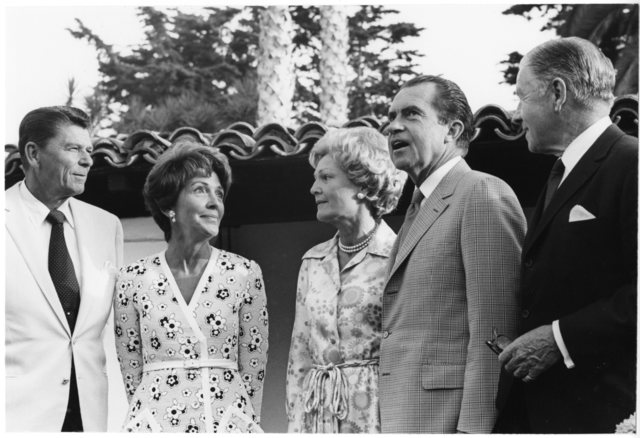6.1 The War on Drugs

Although the U.S. has been engaging in drug wars since the early 1900s, the term “War on Drugs” was introduced by President Nixon in 1971, heralding an escalation of repressive and militarized drug control (Fordham, 2021). In the 1980s, Nixon’s policies were reinforced and expanded upon by President Reagan (History.com, 2019; DPA, 2016). During the Nixon and Regan eras, drugs were increasingly constructed as immoral and blamed for ongoing social problems. This served to divert attention from serious social issues including the elimination of social safety nets, the defunding of schools, and unemployment (DPA, 2016).
Today the war on drugs is a global campaign led by the U.S. The construction of drugs that helps fuel the war in the United States has impacted the framing of and meaning attributed to psychoactive substances, PWUS, and drug policy in Canada (Riley, 1998). As detailed in the Chapter on International Drug Control, international law also plays a pivotal role in building and maintaining a global prohibitionist regime (Santos, 2020). Drug criminalization was, and continues to be, one of the most widely accepted forms of social control. Despite all the problems associated with this form of policy, it is still viewed as a reputable, legitimate government approach by all types of government, ranging from democracies to fascist states (Levine, 2003).
Click the links to learn more about the role of the U.S. in the global war on drugs, some of the vested interests behind the continued vilification of drugs and PWUS, and the maintenance of failed prohibitionist policies:
Vested Interest is the Driver of Prohibition
How the United States Fueled a Global Drug War, and Why it Must End
VIDEO: Ethan Why We Need to End the War on Drugs
In the following Ted Talk, Ethan Nadelmann, the founder of the Drug Policy Alliance (DPA), explains why prohibitionist drug policy does not work.
Policies and programs that provide benefits and/or assistance to individuals and families. They are designed to promote income security and social and economic opportunity (e.g., social-assistance, employment insurance, social security, school feeding programs, food vouchers, public transit passes, enhanced health care, job training, etc.) (The World Bank, March 2019).

